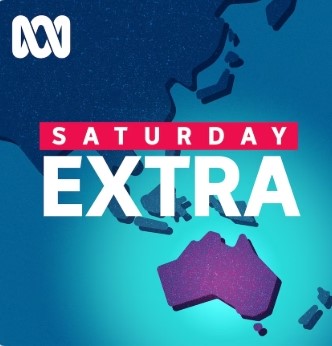Lyn Carson, in The Mandarin 20th December 2019
If we know a great deal about something, we close our minds to alternative pathways, we share our knowledge with people who support our opinion (confirmation bias), and our creativity is constricted because we think we know what’s possible and dismiss anything that sounds unrealistic. Lyn Carson shoes how to mitigate these realities of being in positions of governance and oversight positions.
Public interest journalism has the primary purpose of informing individuals about their democratic decision-making. However, when it comes to complex public policy issues, individuals remain relatively uninformed. The well‐documented low levels of knowledge in these cases might be regrettable to democratic theorists, but it’s understandable given the incentives facing any individual. We simply don’t need to know everything about everything because it’s not going to make that much difference anyway.
If I have but one vote or opinion out of millions, why should I spend a lot of time and effort becoming informed about complicated policy questions? My individual vote or opinion will not make much difference. And most of us have more urgent demands on our time and attention. 1
Rational ignorance, a term devised by political economist Anthony Downs in the 1950s, involves weighing up the cost and benefit of acquiring knowledge relative to the time and effort involved in doing so. Politicians say that they want to hear lively debate in which all citizens participate. The problem is that this responsibility is often placed at the feet of all citizens. An individual does not need to become informed on difficult policy issues, as his/her role is typically limited to voting for parties and/or candidates.
If you pick an average Joe off the street, stick a television camera in his face, and ask, ‘So what do you think we should do to improve the economy?’ you are likely to get, at best, a simplistic answer like, ‘Create more jobs.’ However, if you ask the same individual to come to a several‐hour‐long dialogue session, where time is taken to explain the core challenges and the basic approaches to fostering a strong economy, and tell him that he will be able to offer his own input on how leaders should address the issues, a number of things happen. One, in a surprising number of cases, the citizen actually volunteers his day to contribute to the process. Two, he has a good time interacting with citizens of diverse perspectives, learning about the issues and talking about the possible policy solutions. Three, he actually shares ideas that are coherent, thoughtful, and enlightening to leaders.2
Public deliberation usually involves people who are usually not aligned with an interest group or already active in the political arena. To achieve this diversity of input, stratified random selection is often used to deliver a microcosm of the larger population.
The method for selecting participants is paramount. It’s easy to find the squeaky wheels or delegates from interest groups. What’s more difficult is attracting the voiceless: those whose voices are rarely heard. If a cross‐section of a population is brought together, there will inevitably be varying levels of education, knowledge and experience. This means that many people will not know a great deal about the topic under discussion. Though this may seem counter‐intuitive, such a situation is seen as an ideal starting point. If we know a great deal about something, the following happens:
- We close our minds to alternative pathways;
- We share our knowledge with people who support our opinion and this, in turn, limits our thinking;
- Our creativity is constricted because we think we know what’s possible, and dismiss anything which sounds unrealistic.
Events like Kevin Rudd’s 2020 Summit are examples of this, when the “best and the brightest” were brought together to think of big ideas. Instead, intellectual and political elites defaulted to the known ideas they had been formulating for years, and sought familiar ways of garnering support for those ideas: bargaining, caucusing and so on.
A neutral, skilled moderator is important for these deliberations, to ensure that the group can find its own way to achieve its own goals. This is not about controlling a group — it is a way to allow the group to make its own choices. It should be added that there is no need to recoil from contentious debate, because a skilled moderator can probe and encourage participants to extend their thinking, asking: “Why do you believe this to be true? Can you explain your position further?”
A public deliberation can run for varying lengths of time: one day to five days would be usual. It involves a great deal of learning—from fellow participants, from written materials and audio‐visual resources and expert speakers. Therefore, in contrast to the aforementioned 2020 Summit, a diverse group of people approaches the activity differently. They will have formed opinions from mixing with like‐minded people — as we all do. We have narrow sources of information: our friends, family, colleagues and the same media sources day after day. Downes argues that knowledge is distributed and uses examples such as this one:
Who knows how to make a 747 fly from London to Toronto? The short answer is that nobody knows. No one person could design a 747, manufacture the parts (including tires and aircraft engines), take it off, fly it properly, tend to the passengers, navigate, and land it successfully. The knowledge is distributed across a network of people, and the phenomenon of ‘flying a 747’ can exist at all only because of the connections between the constituent members of that network. This distributed network is dependent on diverse sources of knowledge, and a situation which enables these sources of knowledge to connect.3
A public deliberation enables this kind of connectivity by expanding the range of knowledge or information sources and bringing together available evidence. Participants are also alerted to the ways in which we hear and interpret expert knowledge, the lens through which each person views his or her world, and the power of collective wisdom when a diverse group of people gathers to deliberate. While not everyone in the group can be the most articulate or encyclopaedic, each brings stories and observations that others can help integrate into their growing tapestry of understanding. Public deliberation does not depend on a fully‐informed, highly knowledgeable group of people as the starting point.
Ignorance is an acceptable condition with which to begin. Mini‐publics depend on open minds, skilful questioning, deep listening and learning, close analysis and a tendency toward exploring common ground. It’s surprising how differently an issue can be viewed, and how creatively and intelligently it can be resolved when a group is clear about its goals, has power over the direction it wishes to take, has access to sufficient information and an opportunity to thread it all together in a meaningful and inclusive way. By the end, the group is competent to decide. Those who practice deliberative democracy through public deliberations are increasingly of the view that a combination of the smart, and not so smart, is the perfect starting point for fruitful discussion, with participant confidence building through the deliberative process.
The potential of public deliberation is not generally understood, even though there have been close to 750 mini-publics convened in the last 35 years, across all levels of government.4 Mini‐publics don’t require educating an entire population or improving everyone’s skills set. It means that small groups of people, as needed, can become informed about complex matters, and develop the listening, questioning and analysing skills necessary to consider options, and make difficult choices. The fourth estate plays a central role in acting as ‘democracy’s detective’5. It can extend that role by investigating and reporting on deliberative processes, helping to build a more civil conversation and a more inclusive body politic. All rationally ignorant citizens may then also be encouraged to take their turn to practice random acts of citizenship – through public deliberation.
References
- James S. Fishkin (2006) “The Nation in a Room: Turning public opinion into policy”, Boston Review, March/April
- Michael Hamill Remaley (2008) “Fifteen things every journalist should know about public engagement”, National Civic Review, Vol. 97, No.2.
- Downes, Stephen (2006) “Learning Networks and Connective Knowledge”, University of Georgia, IT Forum Paper, Oct.16.
- OECD Open Government Unit (2019), ‘Preliminary Report on Deliberative Processes’.
- James t. Hamilton (2016) ‘Democracy’s Detective: The Economics of Investigative Journalism’ Harvard University Press
- Extracted from (2009) ‘Ignorance and Inclusion, Mr. Jefferson, might be good for Democracy’. Working Paper, United States Study Centre at the University of Sydney.




